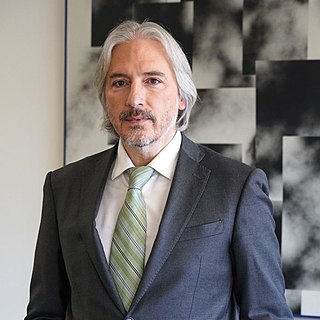A Quote by Satish Kumar
If we had kept the vision of interconnectedness, we would not have created the kind of environmental crisis facing the world today.
Related Quotes
The problem the world faces today is that only one-third of the world's population lives in decent circumstances, while half the population of the world lives on one or two dollars a day. And even as we have this poverty and backwardness, we are facing a global environmental crisis. We need developmental models that will take into account the specific and unique position of each country and at the same time will address the environmental crisis.
In Cuba, what we do not accept is the comparison of our participatory democracy with bourgeois democracy which has not solved anything for humanity. The only thing it has done is to take humanity towards a precarious point. They have created the environmental crisis, the food crisis, the water crisis and the pandemics all over the world. The reason for that is because they have taken the majority of the resources and given it to militarism paid for by the western powers because it is a great business for them; this is the real truth.
Neoliberalism, arguably, sets the course for this kind for this kind of neo-extremism, this right-wing extremism that we are facing. The only way we solve that crisis, the rise of the right-wing extreme, is by truly progressive policies that address this crisis of economic security. That will not come from the lesser evil.
... it is not a crisis of our environs or surroundings; it is a crisis of our lives as individuals, as family members, as community members, and as citizens. We have an 'environmental crisis' because we have consented to an economy in which by eating, drinking, working, resting, traveling, and enjoying ourselves we are destroying the natural, god-given world.
Global warming is not only the number one environmental challenge we face today, but one of the most important issues facing all of humanity... We all have to do our part to raise awareness about global warming and the problems we as a people face in promoting a sustainable environmental future for our planet.
It would be a sign of great simplicity to think that the world was created in six days, or indeed at all in time; [...] Time is a thing posterior to the world. Therefore it would be correctly said that the world was not created in time, but that time had its existence in consequence of the world. For it is the motion of the heaven that has displayed the nature of time.
In the face of the collective action problems that are at the heart of the environmental crisis, consequentialists should seek to inculcate the "green virtues" which includes the virtue of cooperativeness. This would not bring about the best possible world but it would set us on the path of making it better.


































